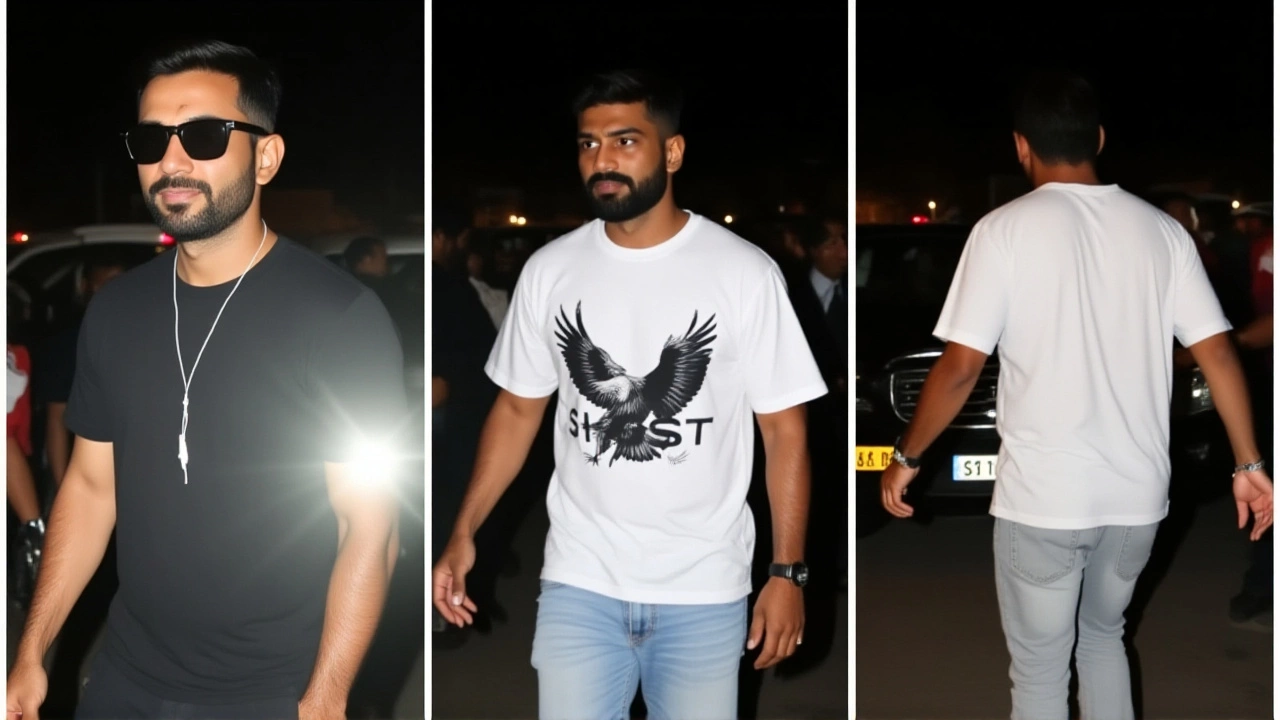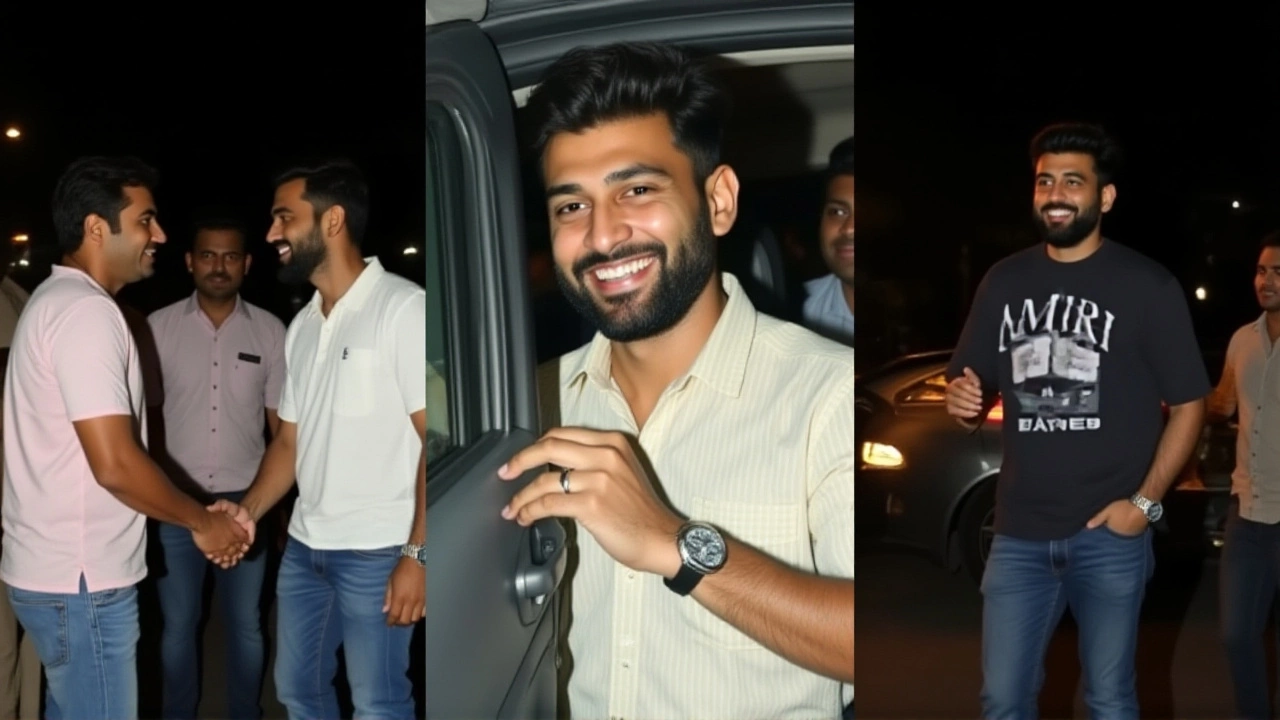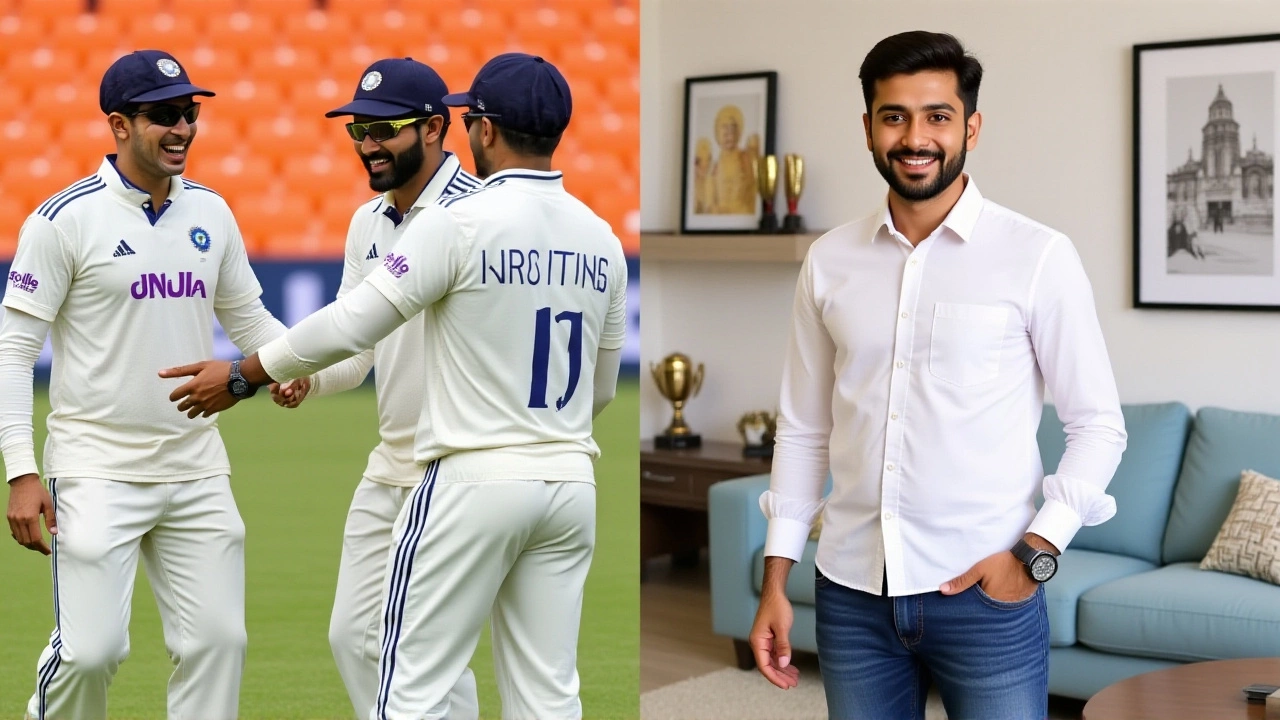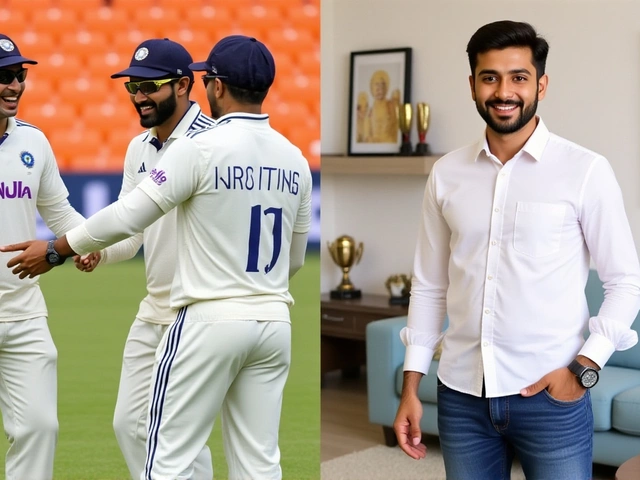When Gautam Gambhir, India head coach, opened the doors of his New Delhi home on the evening of October 8, 2025, he wasn’t just offering a meal – he was staging a subtle morale‑boosting experiment before the second Test against the West Indies.
The gathering took place in his garden, weather‑permitting, under strings of fairy lights that flickered as the Delhi winter cooled. The team bus rolled up, and a relaxed crowd of cricketers and coaches stepped out in casual white tees and jeans, a stark contrast to the disciplined whites they would soon wear on the field.
Background to the Series
India entered the series riding high after a crushing 1‑0 lead from the opening match at the Narendra Modi Stadium in Ahmedabad. In that game, the West Indies were bundled out for a paltry 162 in their first innings; Mohammed Siraj squeaked out 4‑40 while Jasprit Bumrah added 3‑42. Ravindra Jadeja contributed with both bat and ball, cementing a dominant performance that left the Caribbean side scrambling for answers.
With the series poised at 1‑0, the second Test at Arun Jaitley Stadium in New Delhi on October 10 became a make‑or‑break encounter. The stakes were clear: a clean 2‑0 sweep or a chance for the West Indies to claw back momentum.
The Dinner at Gautam Gambhir's Residence
Gambhir’s idea was simple yet effective – create an informal space where the youngest members of the squad could mingle with senior figures without the usual hierarchical pressure. "The twist is," Gambhir later told reporters, "team bonding works best when you’re all sharing a plate, not a spreadsheet."
Among the attendees were captain Shubman Gill, who arrived in a white tee and blue jeans, and his fellow bowlers Jasprit Bumrah and Prasidh Krishna, both sporting crisp white polos. Wicket‑keeper‑batsman KL Rahul and all‑rounder Axar Patel chatted between bites of grilled paneer and tandoori kebabs.
- Bowling coach: Morne Morkel
- Assistant coach: Ryan ten Doeschate
- BCCI vice‑president: Rajeev Shukla
Even the fast‑bowling rookie Harshit Rana made an entrance that turned heads – pulling up in a sleek BMW, a moment captured by India Today’s cameras and later shared on social media.
According to a video posted by Xtra Time on October 9, the evening was “all about unity and focus before the big game.” Laughter, light‑hearted jokes about last‑minute practice mishaps, and occasional strategic whispers filled the garden.

Player Reactions and Team Dynamics
From an outsider’s view, the dinner looked like a typical celebrity gathering – but the undercurrent was distinctly cricket‑centric. When Gill lifted his glass, he said, “We’ve got the talent, we’ve got the plan; now we just need to stay united.” His comment resonated with the younger cohort, many of whom are still finding their footing on the international stage.
“It’s oddly enough refreshing to see the coach in a kitchen apron,” chuckled Bumrah in a post‑event interview. “Usually I see him on the field yelling ‘no‑nos’, but tonight he was just… himself.” That candidness, Gambhir believes, helps dissolve the “no‑nonsense” image that some critics attach to him.
Even the opposition’s perspective was noted. West Indies captain Kraigg Brathwaite, speaking to the Times of India a day later, admitted, “We’re aware they’re tight‑knit. It makes the challenge bigger, but also more exciting.”
What the Win Means for India
Beyond the scoreboard, the series has symbolic weight. After a transitional phase that saw several senior players retire, India’s new core – led by Gill, backed by bowlers like Siraj and Bumrah – is under intense scrutiny. A 2‑0 sweep would cement their claim that the mantle has been passed successfully.
Board officials, including BCCI, have highlighted the need for “consistent performance” as a prerequisite for the upcoming Asia Cup in September 2026. The dinner, therefore, dovetails with a broader strategy: nurture cohesion off the pitch to translate into dominance on it.

Looking Ahead to the 2nd Test
All eyes now turn to Friday’s kickoff at the Arun Jaitley Stadium. If history is any guide, the home side will likely elect to field first, exploiting the early‑morning moisture that traditionally aids swing. Siraj’s recent figures (4‑40) suggest he’ll be the spearhead, while Bumrah will be tasked with extracting bounce from the sub‑continental wicket.
Gambhir hinted that the dinner’s informal strategy talks might surface as “micro‑adjustments” in the team’s game plan – a subtle shift in field placements, perhaps, or a renewed emphasis on rotating the strike. “We won’t announce anything,” he said, “but the players left with a clear sense of purpose.”
Meanwhile, the West Indies will be hoping to redraw the script. Their fast bowler Alzarri Joseph is primed to lead the attack, and the batting duo of Shamarh Brooks and Roston Chase will need to counter India’s spin arsenal, anchored by Ravindra Jadeja.
In short, the dinner was a pre‑lude – a moment where camaraderie was served alongside samosas, setting the stage for a clash that could define the next chapter of Indian Test cricket.
Frequently Asked Questions
How does the dinner affect Team India's preparation for the second Test?
The gathering provided a relaxed environment for players to discuss strategies without the pressure of a formal briefing. Coaches reported that subtle tactical tweaks mentioned during the evening were incorporated into the team's practice sessions, fostering a sense of unity that could translate into sharper on‑field execution.
Who were the key figures present at the event?
Head coach Gautam Gambhir, captain Shubman Gill, bowlers Jasprit Bumrah and Mohammed Siraj, coaches Morne Morkel and Ryan ten Doeschate, as well as BCCI vice‑president Rajeev Shukla.
What was the result of the first Test and why does it matter?
India won the opening match by an innings and 140 runs, largely thanks to Siraj’s 4‑40 and Bumrah’s 3‑42. The comprehensive victory gave India a 1‑0 lead and confidence, making the second Test a chance to clinch a clean 2‑0 series win.
How might the West Indies respond to India's team‑bonding strategy?
West Indies coach Darren Sammy indicated his side will focus on maintaining composure and exploiting any moments of over‑confidence. The Caribbean team’s own internal meetings aim to boost morale, but they acknowledge India’s tight‑knit unit could be a psychological hurdle.
What are the expectations for the upcoming Asia Cup after this series?
Cricket analysts expect India to enter the 2026 Asia Cup as a top contender if they secure the 2‑0 series win. A dominant performance would reinforce the selectors’ confidence in the current batting core and the fast‑bowling trio of Siraj, Bumrah and Krishna.






